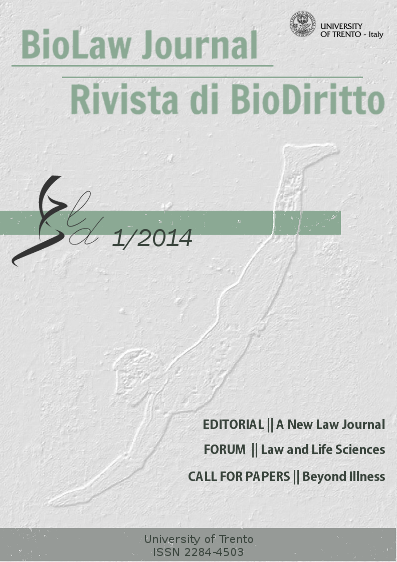L’evoluzione del concetto di malattia e l’art. 582 del codice penale italiano
DOI:
https://doi.org/10.15168/2284-4503-14Parole chiave:
physical integrity, right to health, legal paternalism, definition of illness, criminal lawAbstract
The fact-law dichotomy rule in legal systems has both an epistemological and a moral value. However, its meaning can be highly ambiguous. What, in the construction of key concepts guiding our lives is a matter of legislative discretion, and therefore of legal interpretation, and what is a matter of brute fact, and therefore of scientific investigation? In particular, how does the dichotomy work in the domain of health? How should we interpret laws and statutes when they use terms like “disease”, “pathological”, “healthy environment”, “risk for public health” etc.? There is obviously a social and teleological element within the notion of health, but the legal acceptance of an excessively individualistic reading of it, instead of fostering the right to therapeutic autonomy, might result in a dangerous form of medical and pharmaceutical laissez-faire and in a clash with widely accepted values, such as consumer protection and the conception of the right to health as an inalienable right. On the other hand, if the inherent teleology of the concept is not filled with meaning, even the option for State paternalism is left without a precise content. This has emerged as a central issue in contemporary society. In the last decades, there has been a substantial expansion in industry-sponsored biomedical research, which has helped the diagnosis and treatment of a great number of human diseases, but at the same time has caused concerns about the independence of researches. Industry’s potential steering effects on the clinical literature have been denounced, while medical progress has blurred the line between “cure” and “human enhancement”. This poses the problem of how different conceptual frameworks in medical research should be evaluated from a legal point of view. This article attempts to analyse this problem in relation to Italian criminal law, and in particular Article 582 of the Italian Criminal Code.





